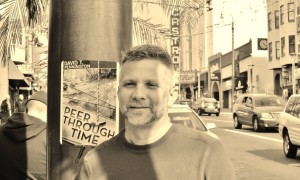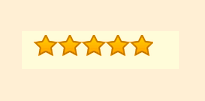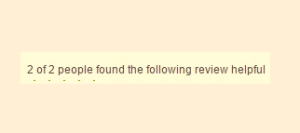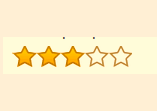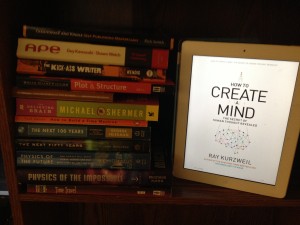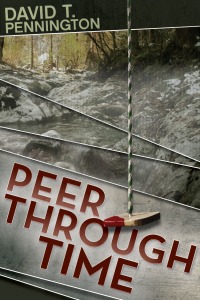Several weeks ago, I quit my job in order to write full-time. This is a temporary arrangement. I’m living off some meager savings, borrowing against my own future for this very scary experiment. My partner’s income doesn’t cover our expenses, but the emotional support provided is at least as—if not more—important.
I do not have any paid writing gigs, nor do I suffer from the delusion that my writing will provide financial support any time in the near future. For a man of no faith—in the religious sense of the word—I’ve taken a huge leap of faith.
My first novel—a science-fiction tale of time travel and murder—took me 19 years just to write the first draft. I wrote only when inspiration hit me, taking months or years off at a time, and there was little story planning involved. It was then that I began studying the craft of writing, specifically novel-writing. The biggest eye-opener? Successful novelists don’t wait for their muse to come to them—they treat their writing like a job, pushing through even when they don’t feel like it, and allowing themselves to write badly, with the idea that they will later be able to turn it into something coherent and intriguing.
My second novel—a sequel, picking up 20 years after the first one ends—was drafted in 10 months. I had transformed myself from a “pantser” (as in, writing by the seat of your pants, with little strategy) into a “planner.” I had the major plot points of my story mapped out, so all I had to do was bridge the gaps in between. Once the first draft was complete, I began what would become the first five months of revisions.
Half-way through this revision period, I could no longer deny the thought that kept creeping into my head, louder and more persistent each time: This is what I want to do. I was so sick of sitting down early in the morning—or late in the evening, or on the weekend—planning to write for an hour or two, only to get interrupted by incoming work.
My job in electronic data management was rarely bounded by the typical workday of 9 to 6. My clients were attorneys, searching for information relevant to whatever upcoming lawsuit we were working on. Usually it was patent infringement—they stole my stuff—and my job was to sift out all the garbage among millions of electronic documents, so that the attorneys and paralegals would have a smaller mountain of potentially relevant documents to examine.
I was working for, and with, workaholics. They often worked until midnight, started up again before sunrise, and had little reverence for the restoration that a Saturday or Sunday off might provide. That our clients were all over the globe was another factor: if it was the middle of the day to them, then we should be working, no matter where we were located, and whether or not we had personal lives to attend to. It’s Sunday and you’re in the park with your kids? Who cares? We’ve got a client call scheduled—last-minute, of course—so get on it.
I don’t have kids, but witnessing others suffer this type of treatment was getting me down. Way, way down. I know there are much worse stories—horror stories—of how some employees are treated, but telling myself “you could have it worse” wasn’t doing much to improve my attitude. I just wanted to write my book, and—just as important—to know when I would have time to write it. Ten minutes here, fifteen minutes there—some authors do write like that, and out of necessity I will likely have to do so in the future, but I wanted to know what it would be like to be able to schedule that time myself. Would I stick to it? Could I possibly be disciplined enough to crank out at least twice as much writing as I had while working a more-than-full-time job? Would it be worth it?
No, I haven’t spent as much time devoted to writing as I had imagined I would. But yes, I’ve been disciplined enough to have made a big difference in where I am now vs. where I would be if I’d still been working that job.
After two weeks of freedom, I had revised the second half of my novel. I had completed in two weeks what had previously taken me two and a half months to accomplish. Not a bad improvement—I was liking these numbers. Over the next several weeks, I went through another round of revisions, wrote a synopsis, rounded up some “beta readers,” and hired an editor to do some substantive (not just copy) editing.
Now that my second, more polished, novel was in the hands of others, I figuratively dusted off the manuscript of my first novel and started planning a complete structural overhaul. I would keep the basic storyline the same, but aside from laying out the general idea and introducing characters, my manuscript was a mess. It contained long passages of characters’ thoughts, without any scenes moving the story forward. There were pages and pages without conflict. There were three protagonists and it was unclear exactly whose story I was telling.
The remedy was not easy to come by. I brainstormed, coming up with ridiculous ideas that no one will ever read. I couldn’t make it work. I had quit my job for nothing. At times, I was stressed and despondent and ashamed—but at least I had time to keep at it.
I kept trying different ideas of how to make the story work—how to make it more compelling, how to take the idea of it in my head and turn that into a reality. What finally kick-started the re-write was fairly simple in retrospect: I switched the point of view of two characters, so that the one written in first-person (originally written in third-person) was now my main protagonist. Secrets that had been kept until the middle of the book were now laid bare right up front, forcing me to come up with new secrets, new twists in the storyline to keep it interesting and moving forward.
Within three weeks, I had reached the one-quarter mark. Three weeks after that, I was halfway done with the first draft of my major re-write. I had done in six weeks what had previously taken me over a decade. It wasn’t purely self-discipline that got me there—I had, little by little, begun immersing myself in the writing life.
I’m not a joiner. It is a major effort to get myself to participate in social activities where I don’t already know someone. But they say you have to find a writing group. Well, you don’t have to—but so many authors have credited their writing groups, at least partially, for their stories’ improvements. It makes perfect sense. I would do it.
So I forced myself to join a writing group—it was a no pressure, come one time if you want, stay as long as you want sort of deal—and it wasn’t terrible. But it wasn’t great. It was, as they say … meh. I did get some writing done that day, in addition to discovering that a café I usually pass by has some great sandwiches and friendly service. And it’s a quiet café where a lot of people come to write. So maybe I did get something out of trying to find a writing group. I’ll keep trying.
The third week of October brought LitQuake, San Francisco’s annual literary festival. There are multiple gatherings throughout the week, many consisting of authors reading excerpts of their work. I went to a few of these events and started seeing some of the same faces in attendance. One author, when asked about inspiration, said that NaNoWriMo was very inspirational.
National Novel Writing Month—NaNoWriMo—occurs each November. It’s a community of writers whose goal is to write 50,000 words during the month of November. It’s quantity over quality, with the idea of fixing it up later. That many words would normally take me several months, but I’m committing myself to the challenge for NaNoWriMo. You’re supposed to start with a brand new book, so I’ll set books 1 and 2 aside and start on book 3, which will complete my trilogy.
So by the end of November, I should have: (a) the first half of my book 1 revision drafted; (b) feedback to start what will hopefully be my final revisions on book 2; and (c) the first half of my book 3 drafted.
Looking back, that’s a lot accomplished in a short amount of time. I couldn’t have done it while still tied to the demands of my former job. I certainly don’t advocate quitting one’s job to follow one’s dream—”don’t quit your day job” is a common warning among authors—and yet that’s exactly what I did. I wish I could travel to the future for a few moments, like some of my characters do, and see what’s become of my future self.
In a way, there is a method for predicting the future, one that we all possess: you create it yourself. You lay out a plan, saying “first I’ll do this, which will lead to that,” etc. You may not have the timeline down, and you have to be flexible, but as the saying goes, the best way to predict the future is to create it.



